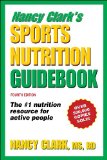In a nutshell:
Manganese is a component of many enzymes which partake in the energy transformation. It is vital for the formation of bone and connective tissues.
In-depth:
The total amount of manganese in the human body is about 10 to 20 mg. It is vital for the function of human enzymes that are involved in metabolism e.g. the catabolism (digestion) of protein and fat.
Manganese is important for the formation of the thyroid and sexual hormones. It participates in the digestion of cholesterol and the production of insulin. In addition to this the body needs manganese for the growth of bones and for the storage of glucose in the liver.
Requirement, deficiency, oversupply:
Recommended intake according to the DGE* |
Age |
Male |
Female |
19 - 25 |
2 - 5 mg |
2 - 5 mg |
25 - 51 |
2 - 5 mg |
2 - 5 mg |
51 - 65 |
2 - 5 mg |
2 - 5 mg |
over 65 |
2 - 5 mg |
2 - 5 mg |
* Deutsche Gesellschaft für Ernährung - a German Nutrition Society
There are hardly any known human manganese deficiencies. A manganese deficiency can lead to a reduction in enzyme activity.
There are no serious effects if too much manganese is taken into the body. Manganese poisoning usually comes from an industrial source or from a high dosage of manganese from dietary supplements. Manganese poisoning can lead to damage of the central nervous system, mental health problems as well as changes in the blood count.
top  |
Manganese in Food:
Manganese rich sources are mostly plant foods such as tea, whole wheat flour, wheat, legumes, germ buds, walnuts, hazelnuts. Animal foods have very little manganese.
Manganese in 100 g Food:
Oats: 5 mg
Soya flour: 4 mg
Whole wheat flour: 3.5 mg
Hazel nuts: 3 mg
Whole wheat bread: 2.5 mg
top 

Advanced Sports Nutrition-2nd Edition
Dan Benardot

Nancy Clark's Sports Nutrition Guidebook
Nancy Clark

The Complete Book of Food Counts, 9th Edition: The Book That Counts It All
|

